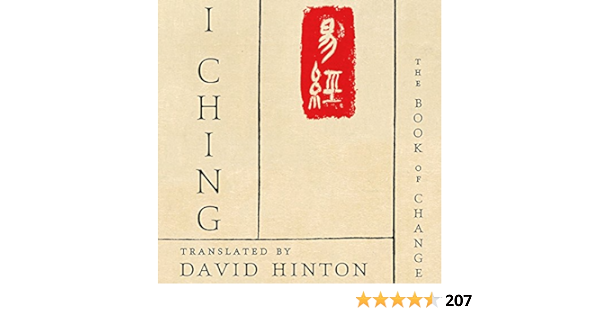I Ching / David Hinton / Ancient to 2015
In an effort to familiarize myself with the Eastern canon and Daoism better, I listened to the I Ching. It was dramatically apparent that listening to the I Ching front to back is a wrongheaded approach to engaging with the text. Traditionally, readers roll dice that add up to a hexagram and flip to the corresponding page. Once there, they read a mix of symbols, images, and sometimes didactic, sometimes mysterious aphorisms. In this way, the practice feels like a cousin to tarot. It’s up to interpreters to figure out how to apply the meaning to their own lives. Drawing from the depths of millennia of Chinese culture, the texts frequently uses natural and feudal imagery. It’s also poetry, as in the original Chinese, one line may be read eight different ways, a tool that obviously works brilliantly for an interpretative, fortune-telling text. I prefer this practice to contemporary astrology and tarot, which requires one to either acquire a whole set of new vocabularies to play with or find a charismatic practitioner to really get something interesting. I like the I Ching because it gives me a poem to play with, and since its wisdom is generally Daoist, I typically find something that more or less aligns with my sense of values anyway. In any case, here’s an online version if you are desperate enough to reach towards the supernatural these days: https://www.ichingonline.net/ The I Ching can only get a 5/5, rational thinkers stay mad!
